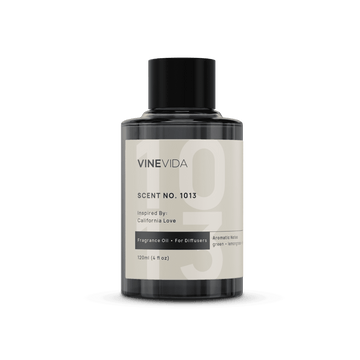Scientific Name: Juniperus Communis L
Origin: Austria
Plant Part: Berries
Scent: Woody, Earthy, Sweet, Crisp, and Slightly Fruity
Color: Clear
Consistency: Thin
Perfumery Note: Middle
Initial Aroma Strength: Medium
Extraction Method: Steam Distilled
Juniper Berry Essential Oil: Benefits, Uses, and Blends
Believe it or not, the Juniper Berry is not actually a berry. It’s a seed cone that simply appears as a berry due to its fleshy appearance. These cones grow on the coniferous trees and shrubs widely prevalent in the Northern Hemisphere. One juniper forest—found in the mountains of Tibet—even sits as high as 16,000ft. While there are over forty-five different varieties of Junipers.
VINEVIDA’s Juniper Berry Essential Oil comes from the Juniperus Communis, which is native to India. This fragrant oil gives off a resinous, earthy aroma, with sweet and slightly fruity undertones. These “Berries” have many roles, including medical, cosmetic, and even botanical in alcoholic beverages.
The History of Juniper Berry Essential Oil
The use of Juniper Berries dates back to 1500 BCE. The Ebers Papyrus is a famous Egyptian Papyrus, dictating herbal knowledge from that time. Juniper Berries feature as part of a treatment to cure tapeworms. Historical evidence shows the burning of Juniper Berries as a common method to ward off epidemics and plague, particularly in Ancient Greece. Juniper Berry Essential Oil was also frequently used in ancient times, though more commonly for medicinal purposes. One of its more interesting uses was to help increase stamina in Greek Olympians.
Juniper Berries were also commonly used to flavor food and drink all over Europe, but particularly in Scandinavia. This is why it should come as no surprise that it is also an additive to alcoholic beverages! Originating from the Netherlands in the 17th century, gin is locally known as “Jenever”. Though Juniper Berries had been used as a botanical to flavor alcohol for centuries prior—including in the Scottish Highlands—this is when gin truly came into fashion. Jenever is still the national drink of the Netherlands, though it is popular in many areas around the world.
Juniper Berries still provide many beverages with fresh, herbaceous flavor, but their use in essential oils is becoming more prevalent. Juniper Berry Essential Oil uses may have changed slightly over the years, but it has long been a player in the world of alternative medicine and deserves some recognition. Let’s take a closer look at how the components of this oil break down:
Juniper Berry Essential Oil Benefits: Component Breakdown
- Beta-pinene: Research shows b-pinene holds promise as an antibacterial and antimicrobial agent, particularly against the common Candida Albicans. It is also a common additive in many products such as dairy and baked goods. Beta-pinene is one of the most important components taking part in Juniper Berry Essential Oil benefits.
- Beta-myrcene: Studies show beta-myrcene to be a significantly effective anti-inflammatory. It also shows indications of working as a mild sedative, which may explain the anecdotal claims that Juniper Berry Essential Oil can help to induce sleep.
- Alpha-pinene: a-Pinene is a known antimicrobial agent. A study found a-Pinene to be an effective inhibitor of gram-positive bacteria. Scientists recommend further research on a-pinene to gauge its use in antimicrobial therapy.
- Limonene: Limonene is present in many essential oils, including Juniper Berries. Research indicates it has antioxidant properties and anti-inflammatory properties. However, until more about limonene is known, its main use will continue to be as a key ingredient in drinks, food, cleaning products, and even insect repellents.
- Sabinene: A potentially effective anti-inflammatory, making sure of the Juniper Berry Essential Oil benefits.
- Terpinen-4-ol: Terpinen-4-ol shows significant promise in terms of cancer treatment. Research indicates it is capable of causing cancer cell death both alone and in adjunct with other treatments.
- Gamma-Terpinene: This component is also found in Eucalyptus Essential Oils, and studies show it to have anti-inflammatory properties.
- Delta-3-carene: Research on delta-3-carene indicates it may have antifungal properties.
- a-Terpinene: Indications show a-Terpinene may possess anti-inflammatory tendencies.
Juniper Berry Essential Oil Uses: For Wholesale Purposes
Juniper Berries contain more than just monoterpenes; they also contain antioxidants, coumarins, and Vitamin C, which means their use in oils may offer us benefits in terms of health and well-being. In addition to acting as an antiviral agent, Juniper Essential Oil benefits may include anti-inflammatory, and antibacterial effects.
Research indicates Juniper Berry Essential Oil may also be effective in fighting inflammation. This study suggests Juniper Oil may have a future role in areas relating to metabolic health, cancer therapy, and immune response.
Juniper Berry Essential Oil for Soapmaking
Skin inflammation often shows itself as a rash, such as dermatitis or psoriasis. Other conditions include those brought on by bacteria, such as ringworm or cellulitis. Juniper Berry Essential Oil benefits include its ability to treat inflammation of the skin, making it the perfect addition to homemade soaps. Most commercial soaps are full of chemicals that can be absorbed through the skin. Among tons of Juniper Berry Essential Oil uses, soapmaking is one of the most significant ones.
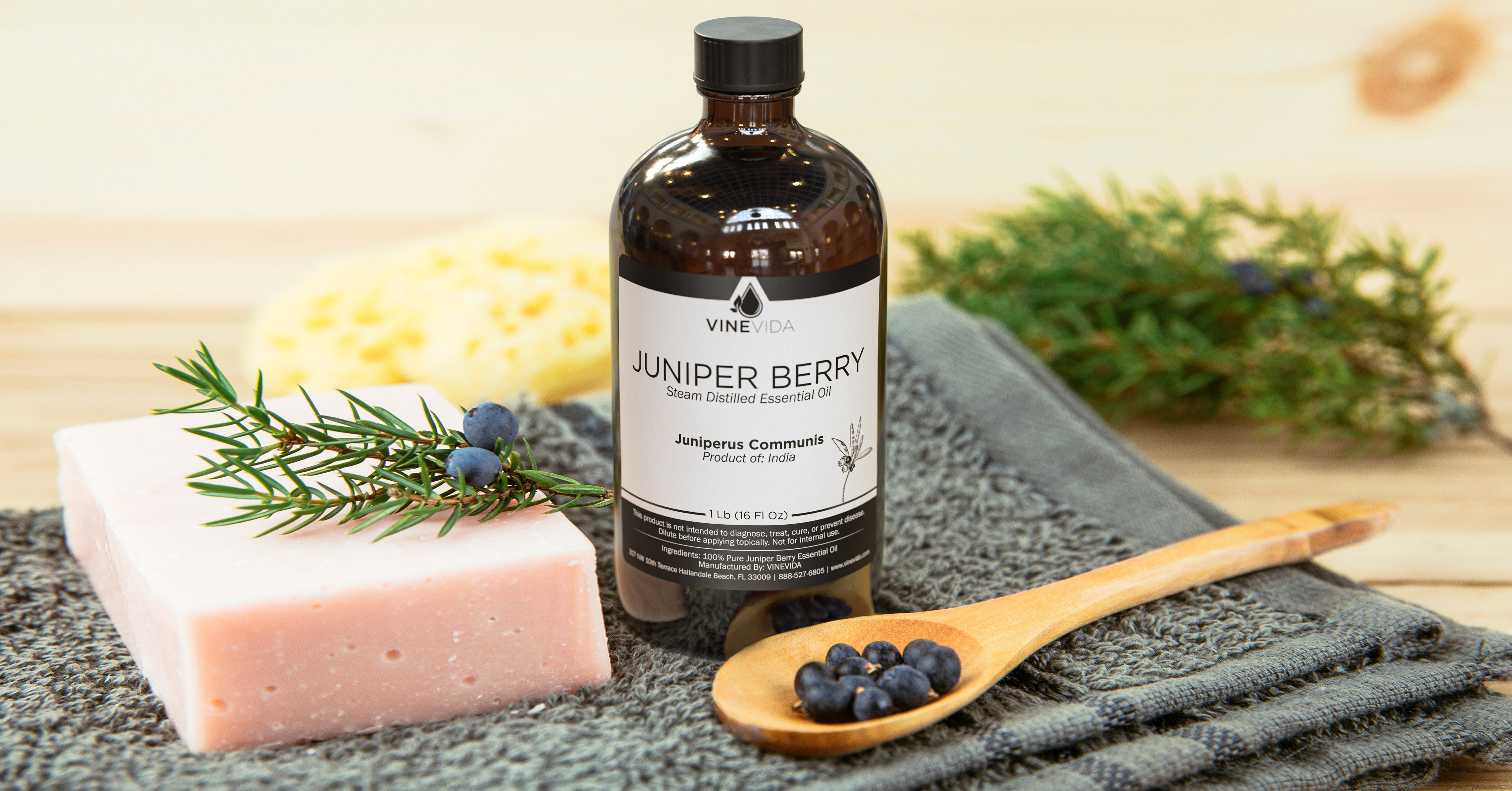 Natural soaps are a safe alternative, with demand rising as consumers become more aware of what is in their products. Estimates put the essential oil soap market at a value of 458.6 million by 2026, which is almost double what it was ten years prior. At VINEVIDA we support clean and natural products, which is why we offer competitive rates to all artisan soap makers.
Natural soaps are a safe alternative, with demand rising as consumers become more aware of what is in their products. Estimates put the essential oil soap market at a value of 458.6 million by 2026, which is almost double what it was ten years prior. At VINEVIDA we support clean and natural products, which is why we offer competitive rates to all artisan soap makers.
Air Freshener
What does Juniper Berry Essential Oil smell like? If you aren’t familiar with juniper, this might be a good place to start. The scent of Juniper is strong and piney, reminiscent of the great outdoors. If you spend more time in bars than you do hiking, then you will likely already be familiar with the scent of Juniper, as these Berries are what give gin its herbaceous aroma.
Many air fresheners on the market contain harmful, toxic ingredients. One of the most common is benzene, which is a known carcinogen. When you see products with the label “green” or “clean” it doesn’t necessarily mean this is true. You have to go beyond this—as these aren’t legal terms—and see what the ingredients actually contain. At VINEVIDA we are fully transparent, offering only pure and natural oils. You can use our oils to create your own, safe air sprays.
Cleaning Products
In June 2020 the global market for green cleaning products hit a whopping 3.9 billion USD. The growth forecasts green cleaning products to rise to the level of 11.6 billion by 2029. This shows the increasing level of consumers who wish to purchase eco-friendly and non-toxic products.
A study looking at Juniper Essential Oil in terms of antibacterial indicates Juniperus Communis to be very effective at treating drug-resistant bacteria. This is the same variety of Juniper found in VINEVIDA’s Juniper Essential Oil. Juniperus Communis has also proven to be effective in combating other bacteria including those that cause e-coli and staph infections, among others.
Adding Juniper Berry Essential Oil to cleaning products is a great way to benefit from its antibacterial properties. Simply add a few drops to a mix of soap and water for an all-natural antibacterial spray. Not only will it work to kill bacteria, but it will also leave your house smelling fresh and clean.
Aromatherapy
Aromatherapy is another one that takes part in Juniper Berry Essential Oil uses. Anecdotal evidence shows Juniper Berry Essential Oil may help reduce stress and induce sleep. During this particular experiment, people reported a reduction in stress, fatigue, and weakness when exposed to Juniper Essential Oil aromas. To benefit from the relaxing properties of Juniper Essential Oil, Aromatherapy is a great option.
Add a few drops to a diffuser or vaporizer before you hit the sack. Throughout the night the woodsy aroma of Juniper Berry will fill the room, ideally helping you get a great night’s rest.
Massage Therapy
In 2017 the spa industry accounted for 93.6 billion USD of the market, but forecasts expect to see numbers around 127.6 billion USD by 2022. This is a huge increase in growth and indicates how many consumers are tending towards a focus on health and wellness. Essential oils are great for combining with massage oils to achieve safe, natural fragrances. When using essential oils it is crucial to dilute them with a carrier oil before applying them to the skin. Create your own massage oils by mixing your choice of essential oils into a carrier oil such as Jojoba. Then, rub it into the skin and joints to help reduce inflammation and stress.
Juniper Berry Essential Oil Blends
If you are curious as to what blends well with Juniper Berry Essential Oil, you will be happy to know there are plenty of options! This oil has a strong earthy scent, which means it blends well with other woodsy oils such as Cedarwood, Sandalwood, Rosemary, and Balsam Fir. Citrus scents like Orange, Grapefruit, and Lime are also a great option, particularly for areas such as the kitchen.
Flash Point
41 °C
Conclusion
Preliminary scientific research on Juniper Berry Essential Oil shows promise for its role in the future. In the meantime, even if you don’t like to drink gin on the weekends you can still reap the benefits of this oil through one of its many other uses.

- Reviews
- Questions
Excellent!
I always receive my orders quickly! I never have to worry when i'm running low on an oil, because I know it'll arrive within a few days. I have a natural and organic bath salt business and these oils are fantastic quality, they give me peace of mind knowing this company cares about the products they put out for us to consume! I'm using this juniper in my mens bath salt and it smells wonderful!
Help for Chaste Thoughts.
Well, I wasn't sure what to expect. It smells like mountain air with a musk. The berry is sweet, but it is distinct on the nose.
What a wonderful surprise
hadn't smelled this one before and what a wonderful surprise.
You may also like
Recently viewed

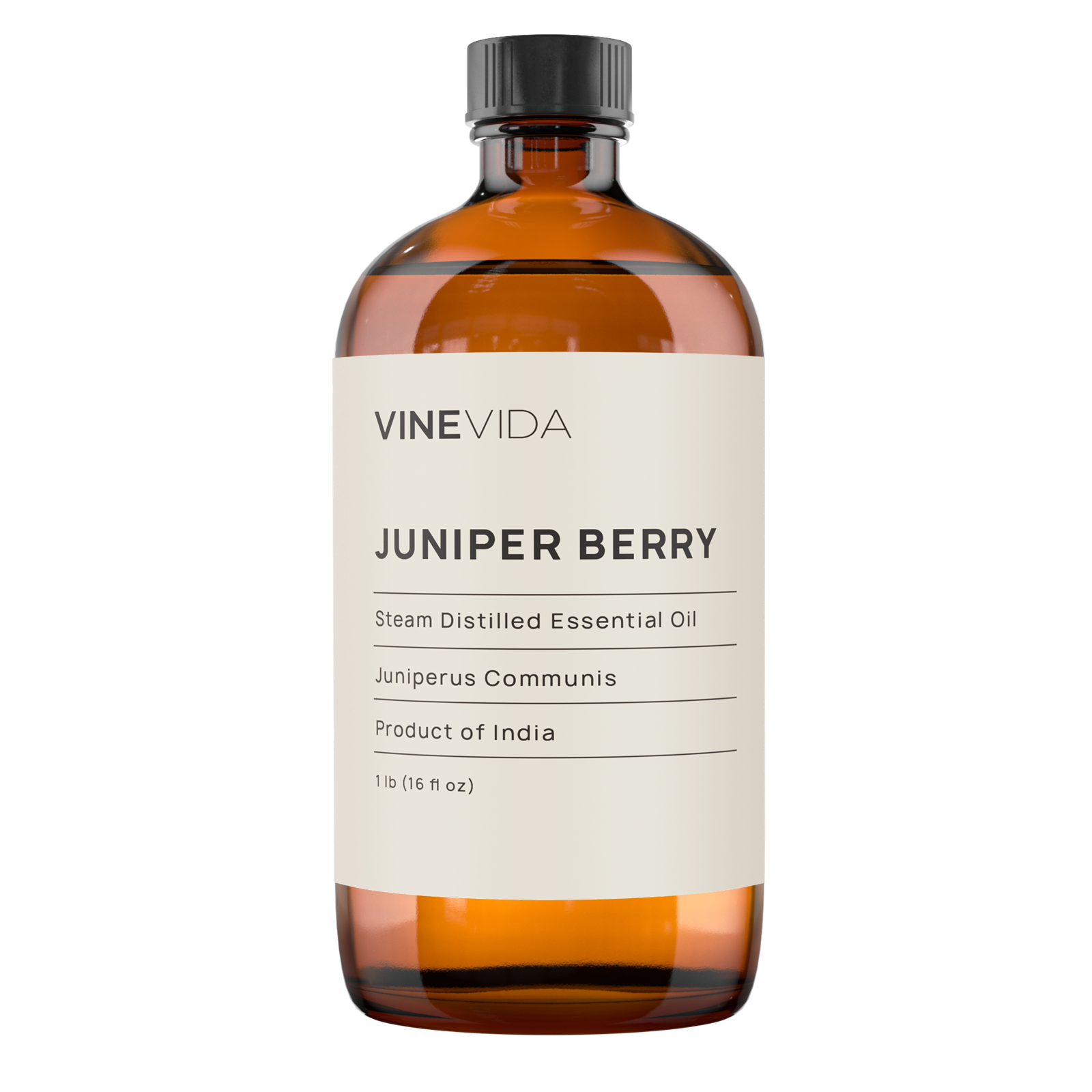
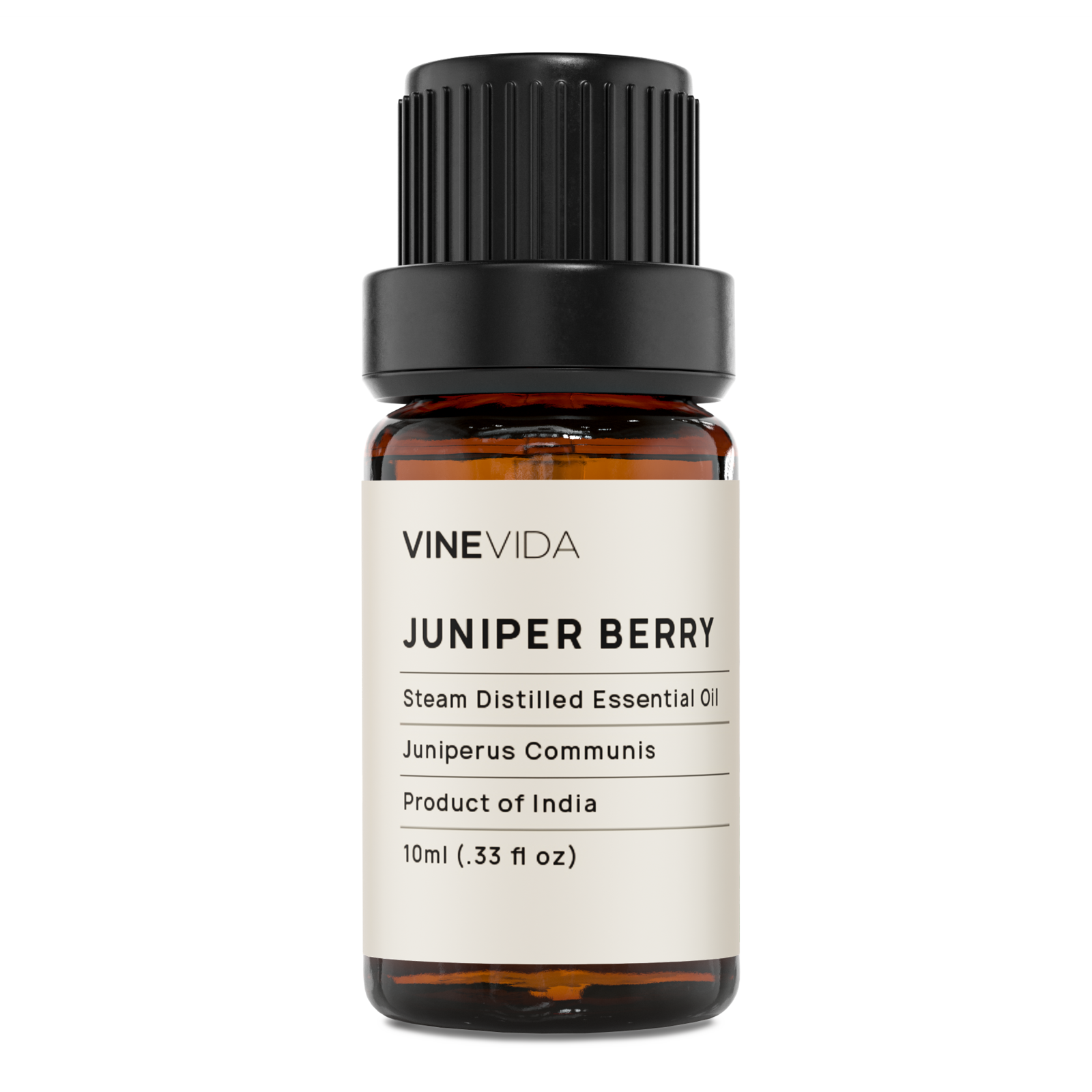
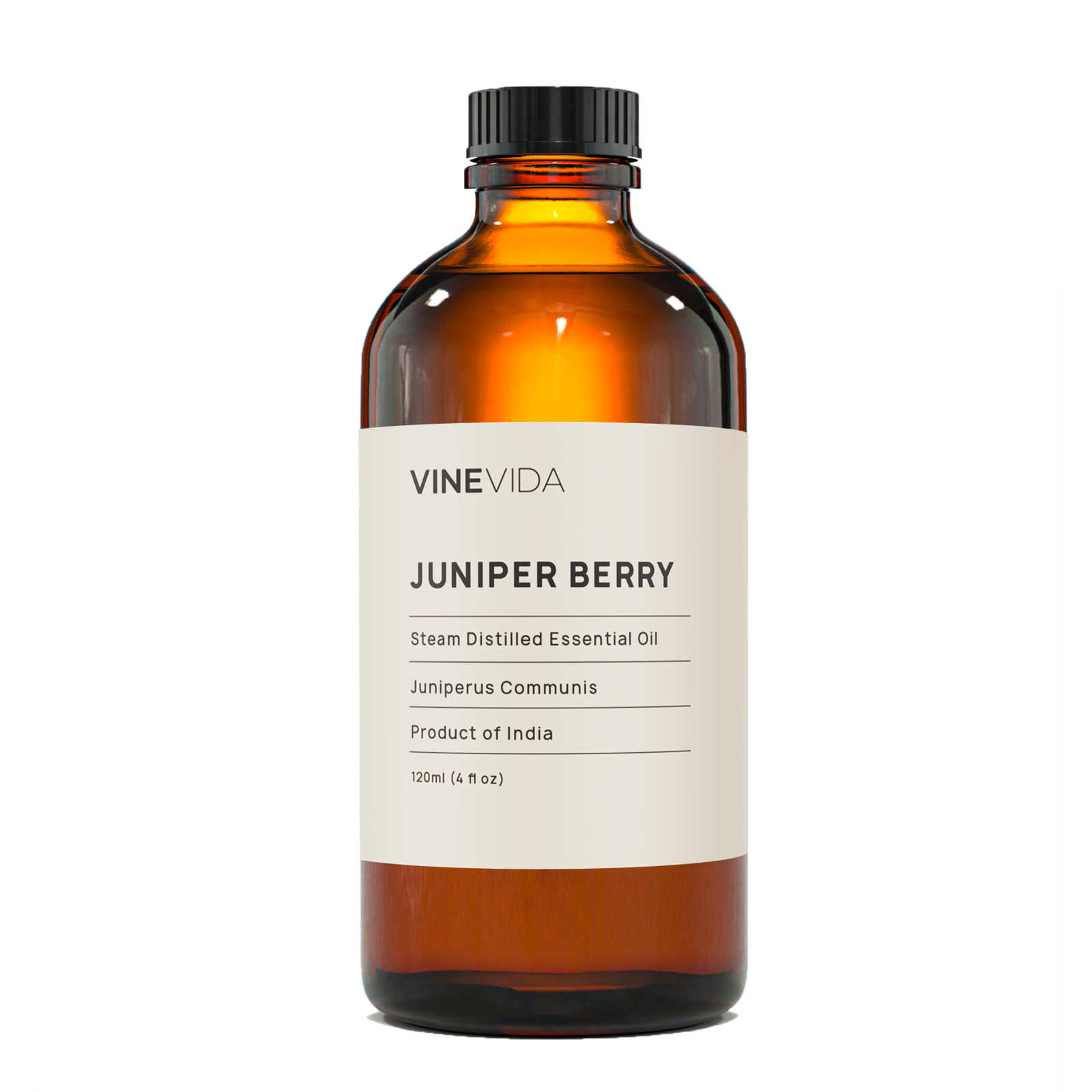
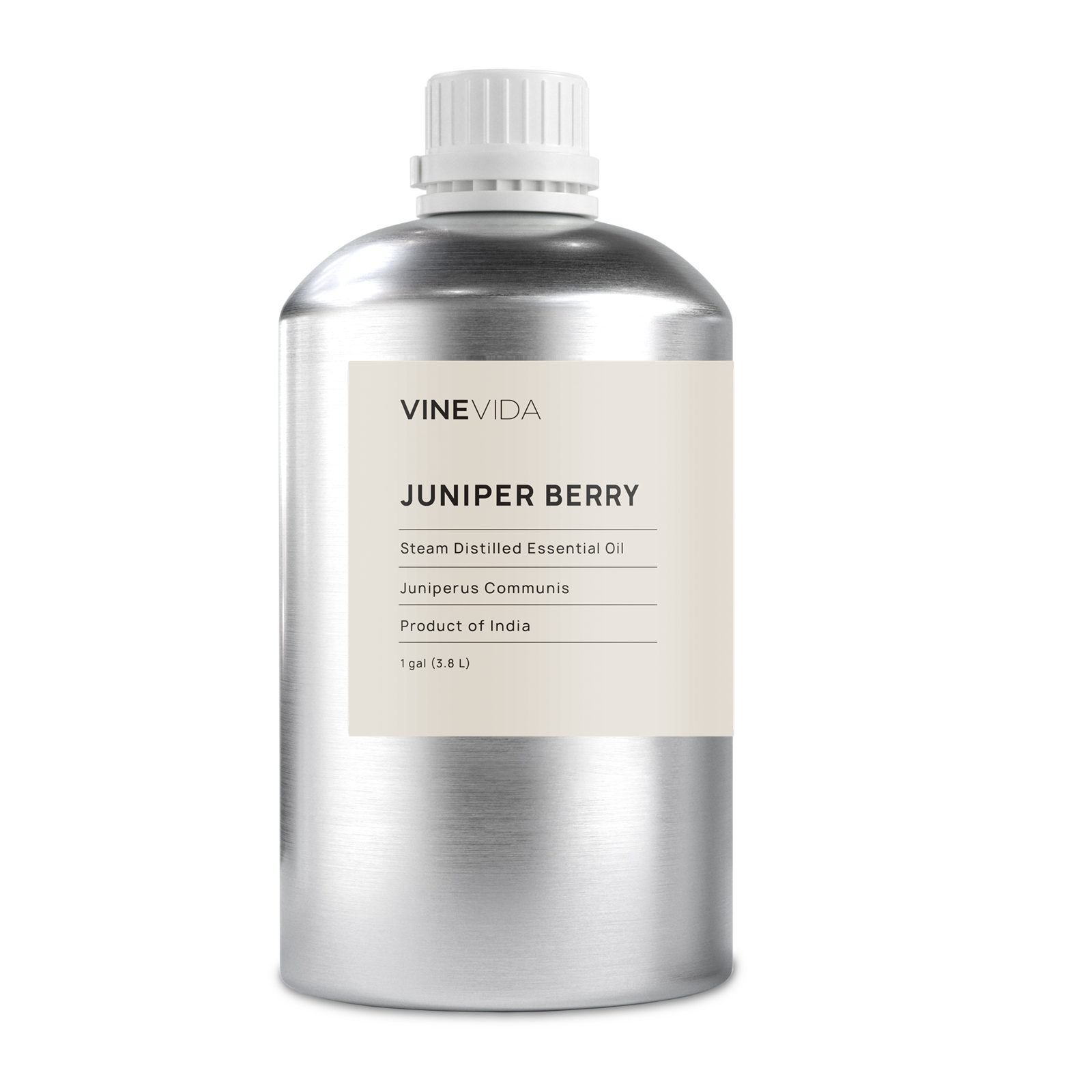
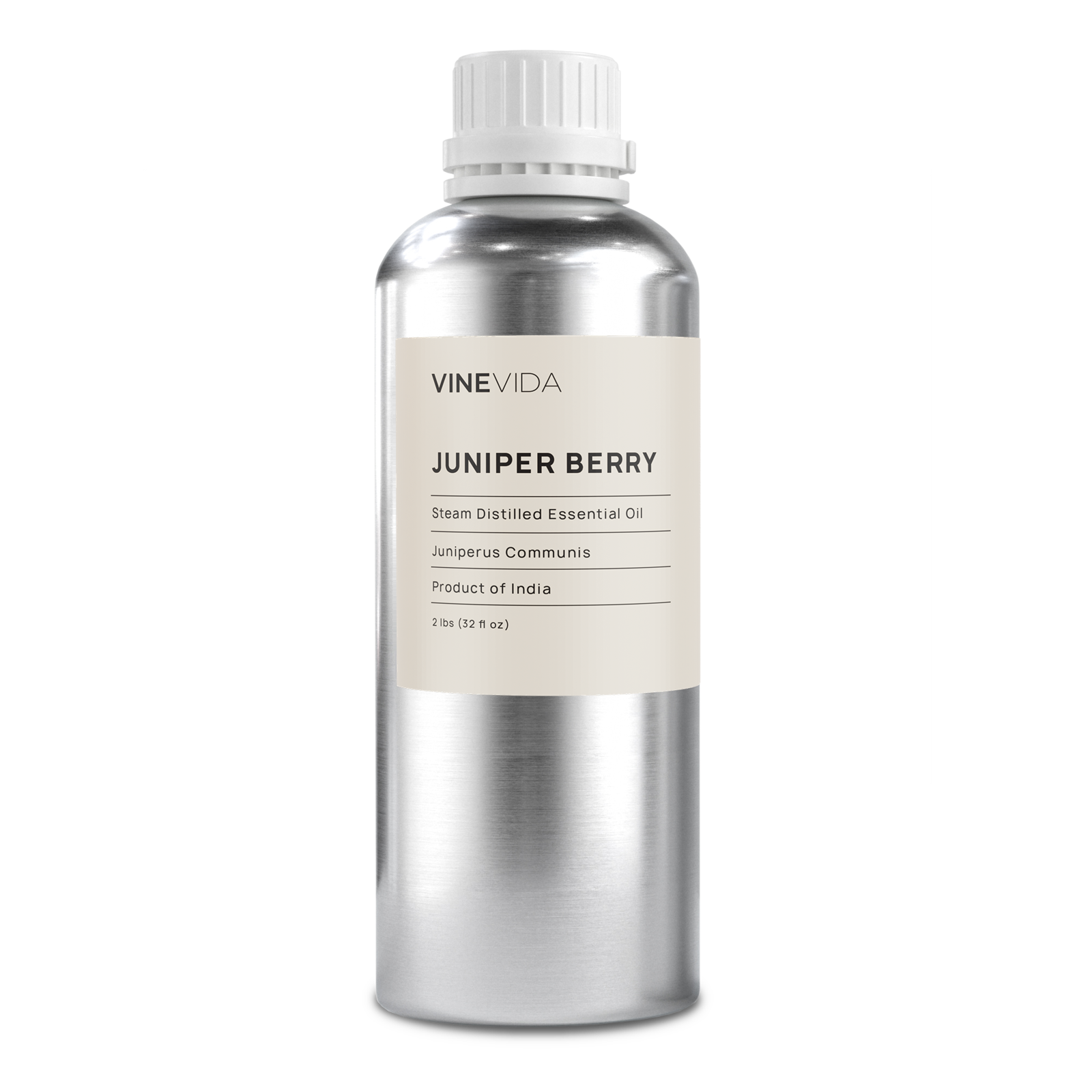
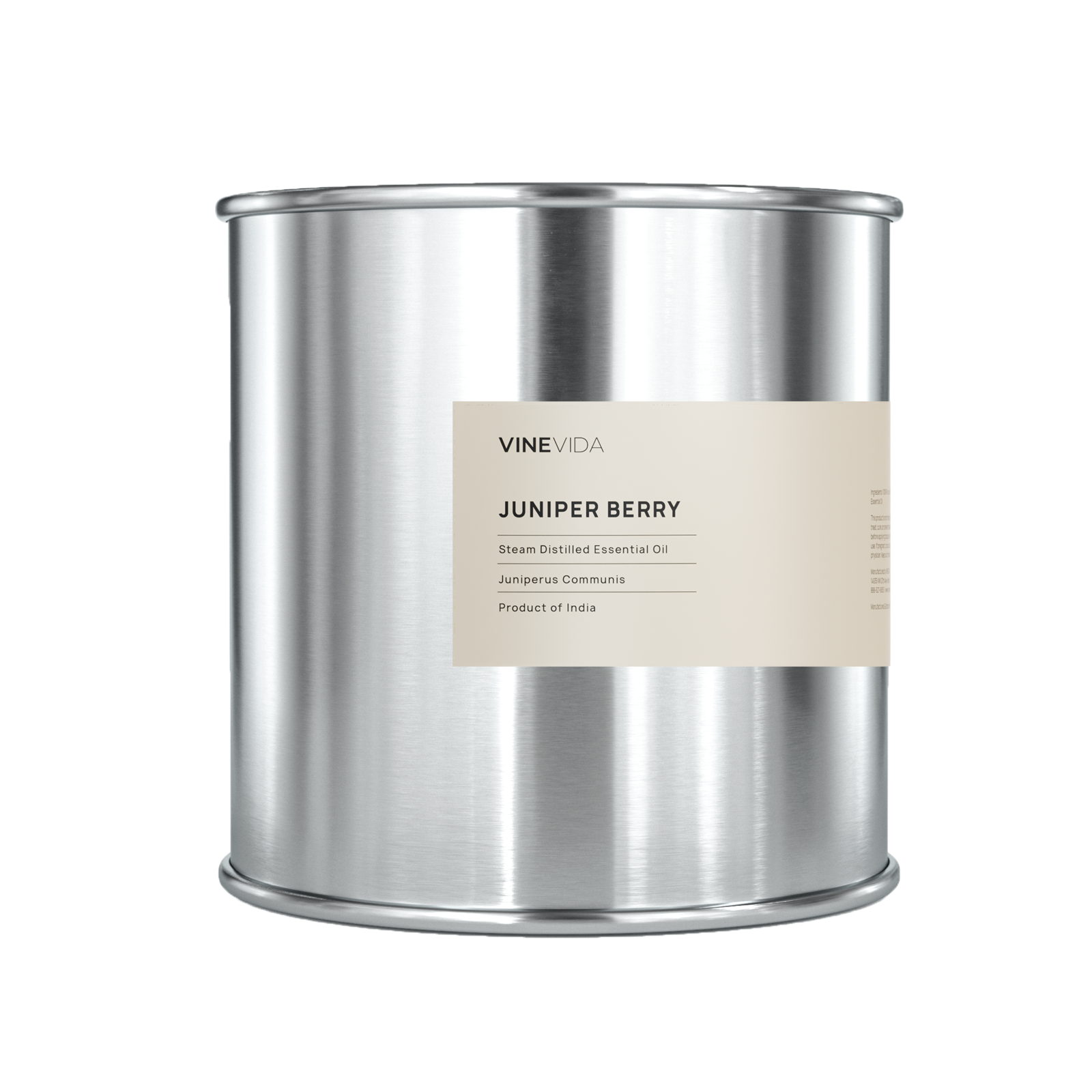
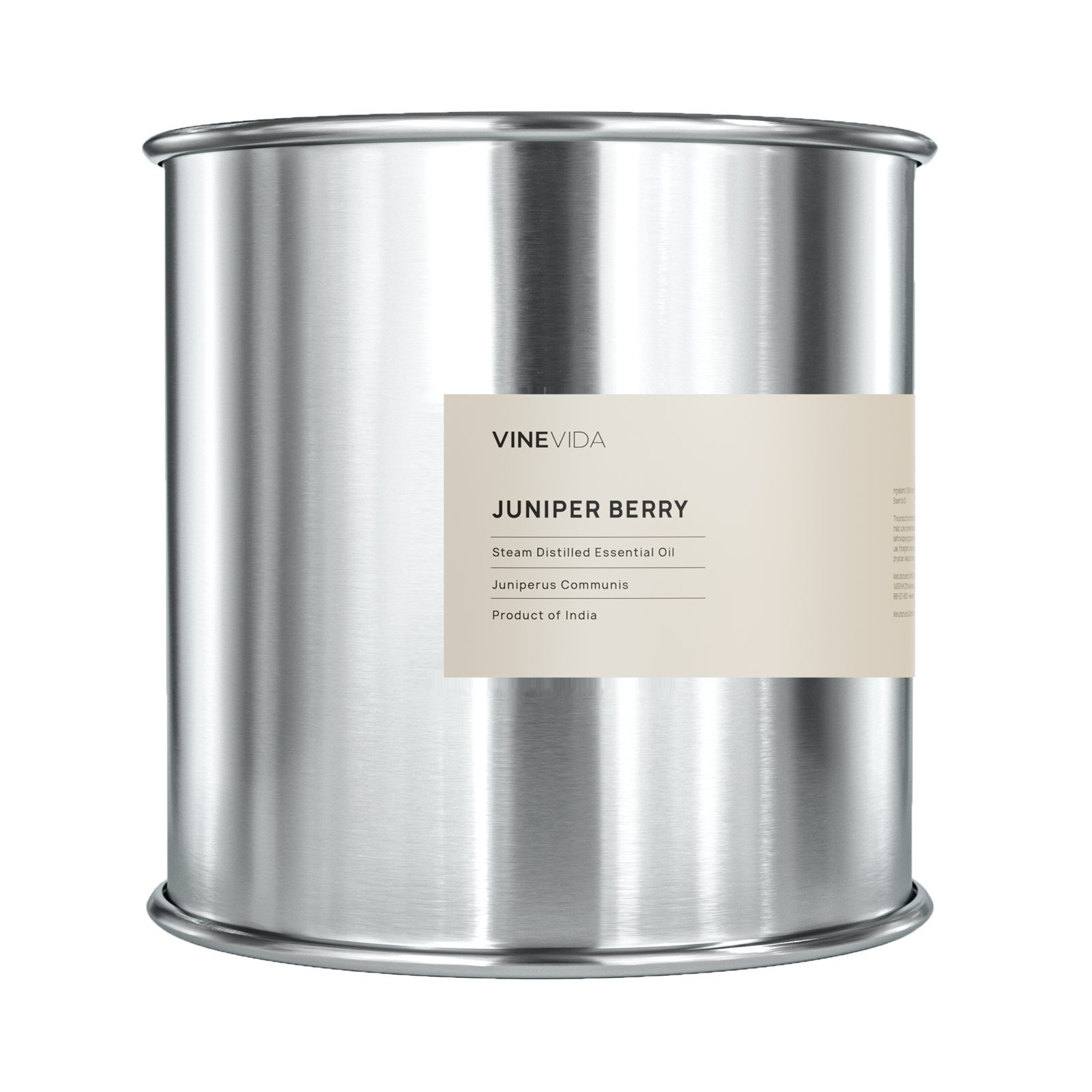
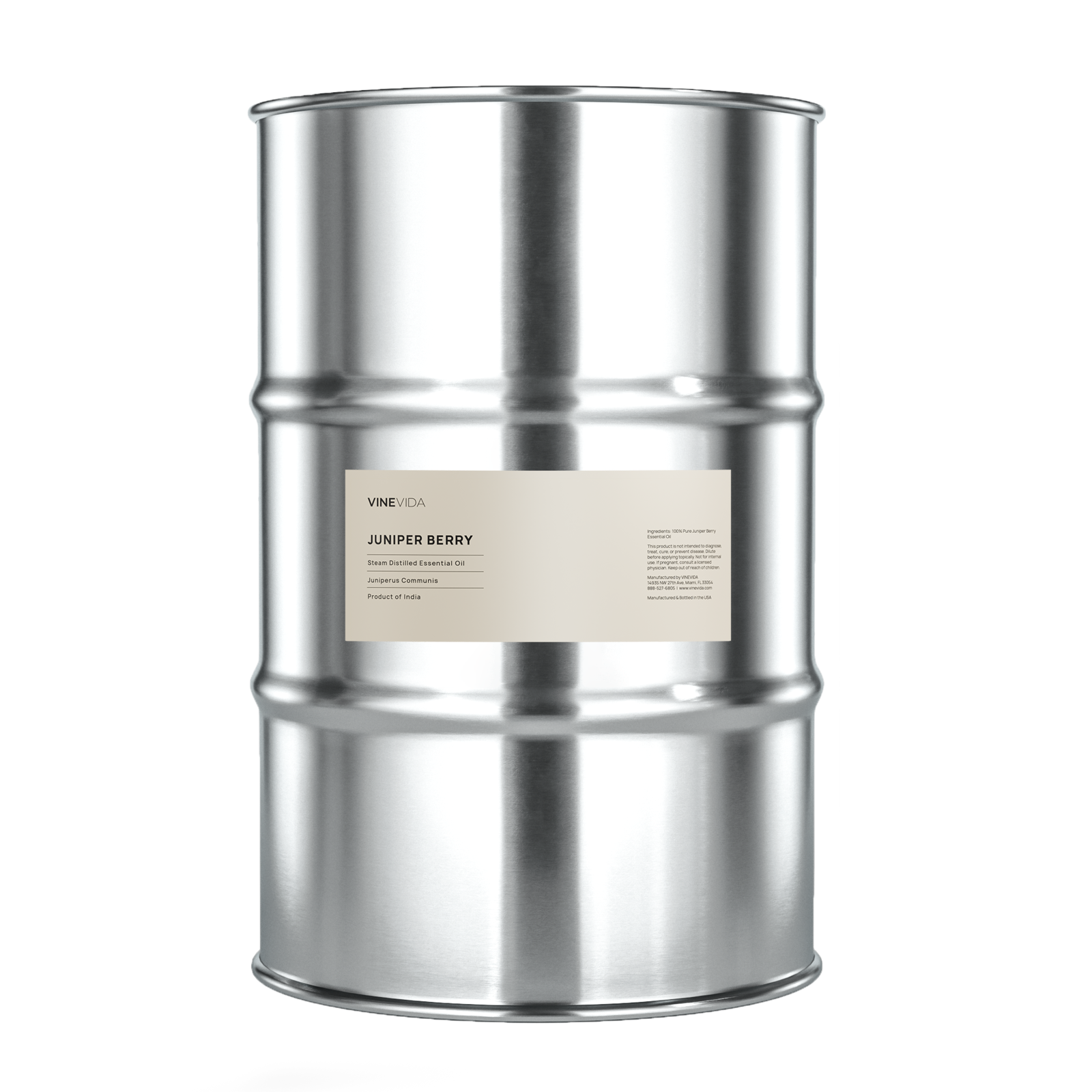





 IFRA Statement
IFRA Statement

















